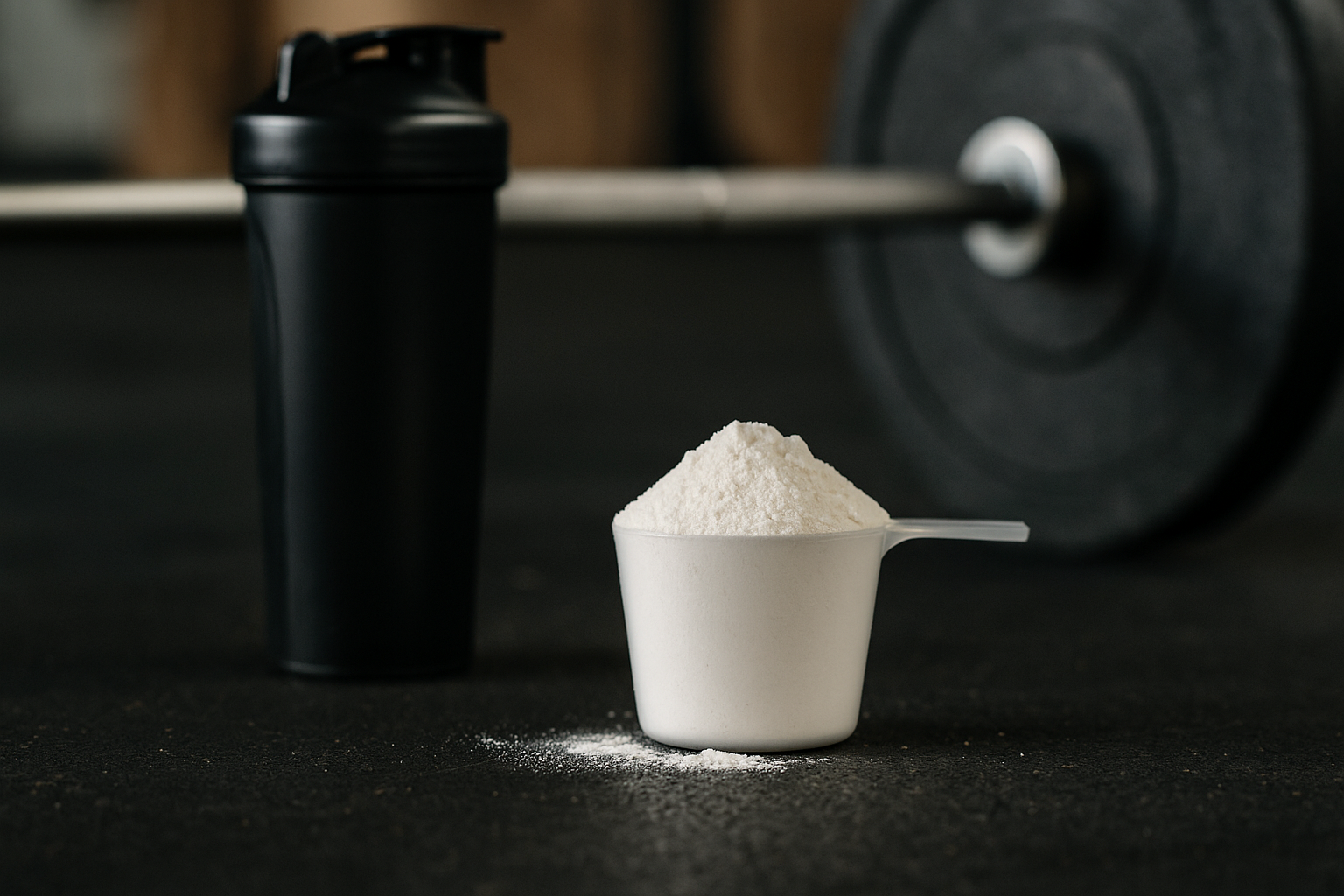William Baier, MS, CSCS, USAW, CFL2
•
September 17, 2025
What Is Creatine?
Creatine is a naturally occurring compound found in your muscles and brain. You get some from foods like red meat and fish, and your body makes the rest. Stored as phosphocreatine, it’s used to rapidly regenerate ATP—the energy currency your muscles rely on during high-intensity exercise.
In short: creatine helps you push harder, recover faster, and get more out of training.
Benefits of Creatine
- Improved strength & power. More phosphocreatine = more high-quality reps and heavier lifts.
- Better sprint and high-intensity performance. Useful not just for lifting, but also running, rowing, and sport.
- Enhanced recovery. Reduces muscle cell damage and promotes faster repair.
- Increased lean mass. Supports muscle growth directly and indirectly (by letting you train harder).
- Cognitive benefits. Emerging research suggests creatine may help brain function, memory, and mental fatigue.
Myths About Creatine
- “Creatine is a steroid.” ❌ False. Creatine is found naturally in foods and produced by your body. It’s a supplement, not a hormone or drug.
- “It causes kidney damage.” ❌ In healthy individuals, research shows no negative impact on kidney or liver function, even with long-term use.
- “It dehydrates you or causes cramps.” ❌ Actually, creatine increases muscle water content, which may improve hydration status.
- “Only bodybuilders need it.” ❌ Athletes, older adults, and everyday lifters can all benefit.
How to Use Creatine
- Form: Creatine monohydrate is the gold standard—cheap, effective, and well-studied.
- Dose: 3–5 grams daily.
- Timing: Not critical—take it consistently, with or without food. Many people add it to their post-workout shake.
- Loading phase? Optional but uneccesary. Simply taking 3–5g/day will saturate muscles in a few weeks.
- Safety: Backed by 30+ years of research, creatine is safe for healthy individuals.
Who Should Take Creatine?
- Strength & power athletes. Obvious wins for lifters, sprinters, and team sports.
- Everyday gym-goers. If you want more energy in the tank for training, creatine delivers.
- Older adults. Helps preserve lean mass, bone health, and cognition with age.
- Vegetarians/vegans. Since creatine is mostly found in animal products, supplementation is especially useful.
The Bottom Line
Creatine is safe, effective, and one of the most proven supplements you can take. If your goal is to lift more, run faster, recover better, or age stronger, creatine deserves a spot in your routine. At just a few grams a day, it’s the closest thing to a no-brainer in sports nutrition.

